January 15, 2022
Friday night, as expected, was noisy even up the hill at our hostel. But we had a door that closed and AC that worked and woke during the night only when the roosters crowed, the dogs barked, the motorcycles roared up the hill, the taxis honked or the loud music played. How do the locals sleep, we wondered?
After a night of inadequate sleep, Susan woke up to a phone call informing her that her best friend of over 50 years had just lost her battle with cancer. It was an incredibly tough start to the day.
By late morning Susan was ready to head out of the hostel and get through the day as best she could by taking in more of the natural beauty of the nearby sea and hills. We decided to extend yesterday’s hike through the village, past Playa Grande, past the private tiny beach we found, and into the more distant hills that climbed around the bay.
With our late start, it was already hot and sunny even before we left and it soon became a difficult hike—not because of elevation or terrain but because we’d become extremely dehydrated without knowing it. We’d each had only one cocktail the night before but they were large and we’d not been paying attention to our water intake. None of the restaurants offered water, probably because it was not safe to drink.
By the time we were a mile into the trail, we were both feeling sluggish and lightheaded, especially Susan, whose struggles undoubtedly were exacerbated by emotional stress. The sun was blazing overhead and though we had water with us, I could tell we needed something more. I had some electrolyte packets back at the room I’d packed in case we had traveler’s diarrhea and needed fluids. I wished I’d brought them along on the hike.
We persevered and continued up and around the hills along the coast, well past where we’d been yesterday. Eventually we came upon another beach where we were surprised to find locals grilling meat over a massive covered firepit, a metal lean-to structure, and a fair amount of trash. Some had arrived on a few small boats pulled up on the shore. Music, smoke, and laughter filled the air.
We went past the noisy, joyful scene, hoping to find a quieter and cleaner beach around the next bend, or the bend after that. We continued as far as the rocky trail allowed without finding a suitable beach. But the scenery was spectacular.
Susan was really struggling so eventually we turned around. Her Apple watch showed her pulse racing even downhill, which never happens for her, and we needed to get back to a cool room. But first we had to navigate the poorly maintained trail that surged up and down to the beaches and up again over the hills, through the village, up the steep road, and then up several steep flights of stairs.
We were glad when we finally opened the door and stumbled into the cool room. Immediately, I mixed up two electrolyte packets and we guzzled them and took cold showers, feeling much better soon. From then on, I carried a couple of the packets in my day pack.
Speaking of showers, the one at our tiny room back in Cartagena had two knobs, one for cold water and one for slightly less cold water. At our hostel here in Taganga, they didn’t even pretend to have hot water and just had a single knob for cold water. We got used to it though and appreciated the simplicity of the plumbing system.
According to a sign in our room, there’s no fresh water source in Tagonga and water for the entire village had to be trucked in. It was then stored in tanks at each individual building so we were very careful not to use much.
The sign in our room also said not to drink the water so we were glad we’d brought along our Crazy Cap for our 18-ounce Swirl metal water bottle. The cap uses UV light to sterilize the water inside. We’d end up using this for every drop of our drinking water on the whole month-long trip—except once, which we soon regretted.
After drinking more sterilized water and a long rest on the hammock, we felt better and vowed to drink even more water from now on. We were coming from a very wet fall and early winter in Northern California and were suddenly thrust into Caribbean heat and humidity and it would take us a while to adjust. Breakfast at the hostel each day included fresh fruit and lots of freshly squeezed juice so we’d make sure to finish them.
Later, at the hostel’s tiny bar/restaurant just below our room, we asked about getting a taxi to our ecolodge near Minca the next day, about 45 minutes away. Susan can usually understand and speak Spanish well enough to get by, but she struggled with the Colombian dialect and was having a hard time trying to figure out how to arrange transportation and how much it should cost. Another guest heard us struggling and asked in reasonably good English if he could help and between him, the hostel owner and Susan, we seemed to have it figured out.
A taxi would be waiting for us at the base of the steep stairs at 10:30 am the next day, we were told. We gave it a 50/50 chance that it would happen but if so, it would prevent us from having to walk into the village and trying to negotiate a taxi ride in barely understandable Spanish.
As the evening cooled, we walked back down the road to the first restaurant we came to, which was said to be among the best in the village. It was called Babaganoush—one of several restaurants in Taganga serving a combination of Middle Eastern and traditional Colombian food, perhaps to appeal to the many Israeli tourists. We climbed up three steep and narrow flights of rickety outside stairs to the restaurant, which had an incredible ocean and sunset view. We had a sort-of Mediterranean appetizer and a local seafood pasta dish that were surprisingly good. Dinner, including a couple of beers and tip, was US$17. In Colombia, many restaurants add an automatic 10% tip—most people didn’t tip voluntarily.
Feeling well-hydrated and well-fed, we walked back up the road and steps. We sat on our balcony and watched and listened to Saturday night in the village. Music swirled from a hundred places – cars, homes, boomboxes and beach restaurants whose music was so loud that it would be torture to walk by them.
We tried to sleep as we listened to the sounds of the village. Susan was grieving and sleep would come especially late for her.

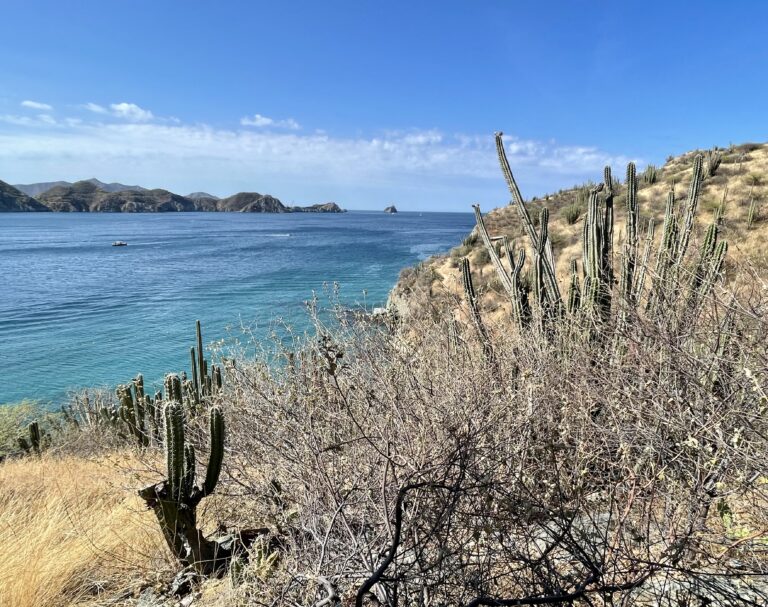
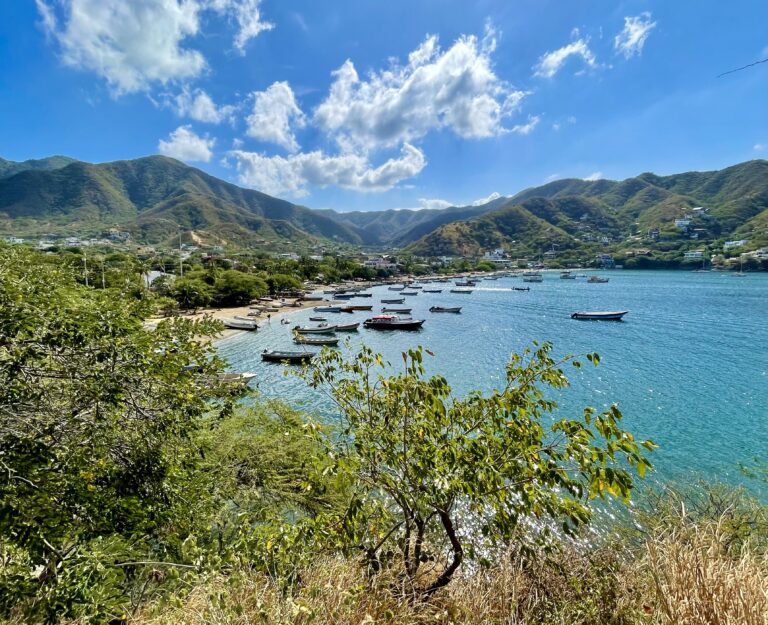
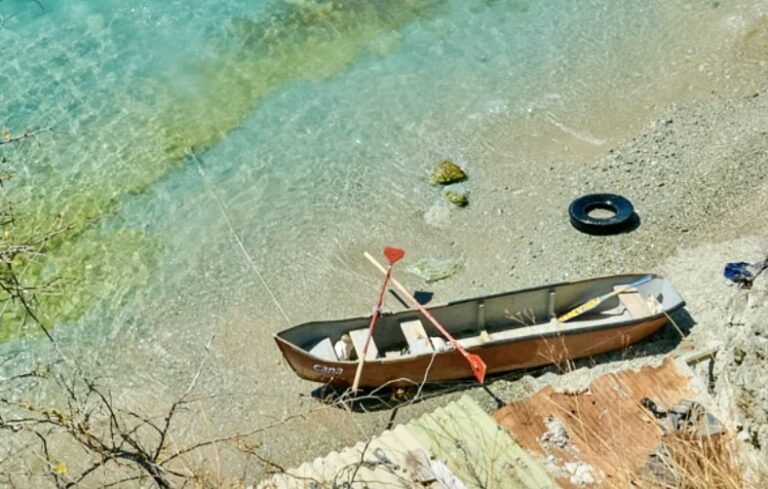
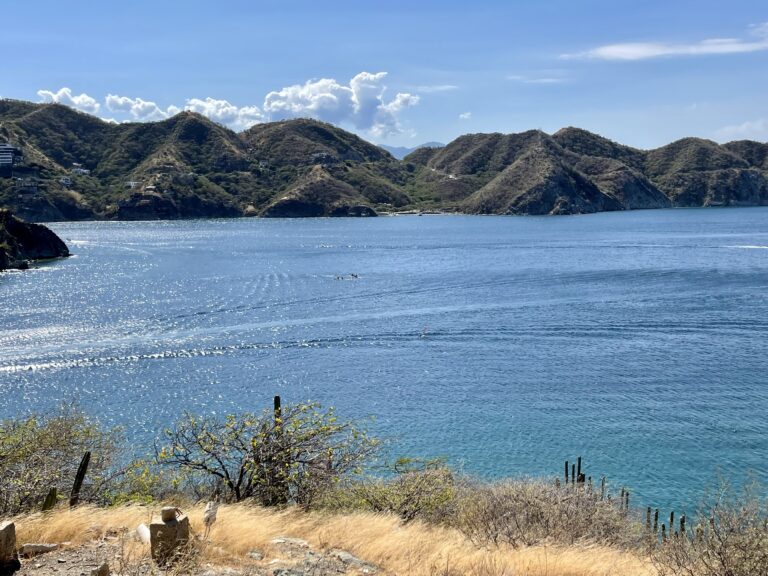
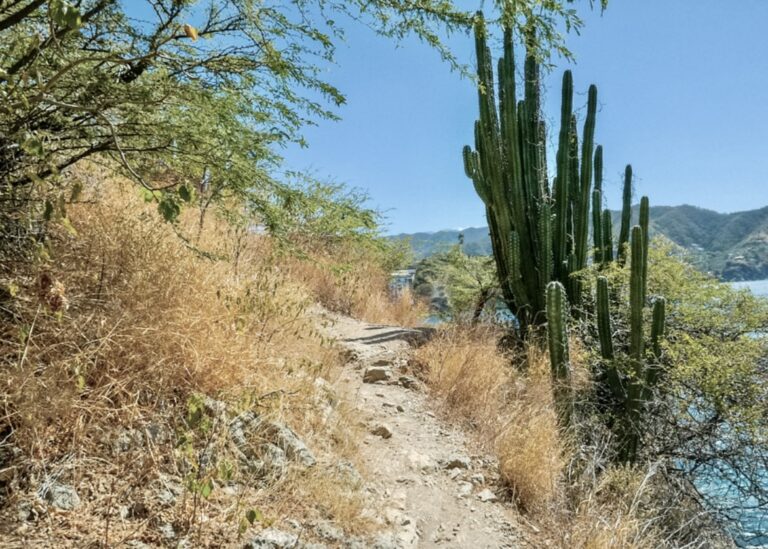
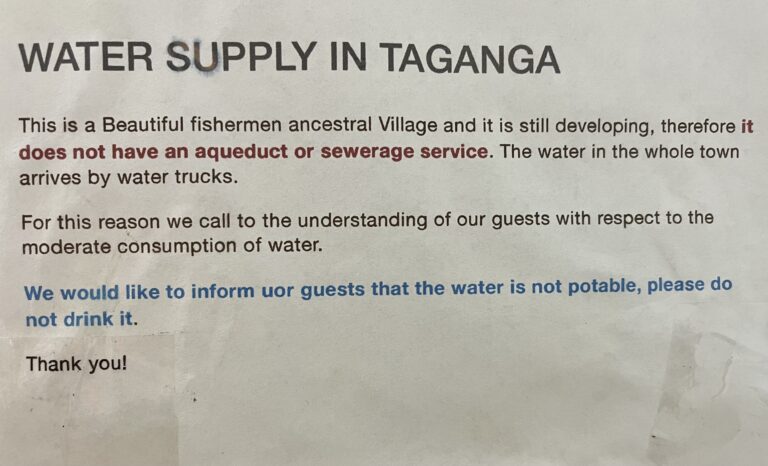
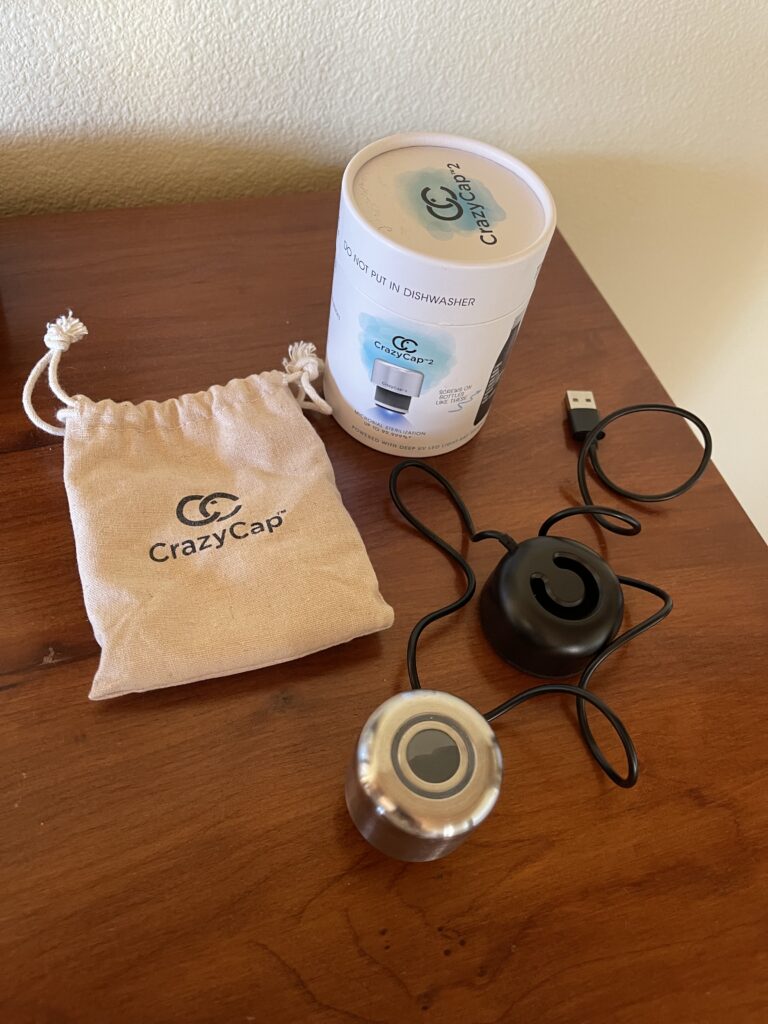
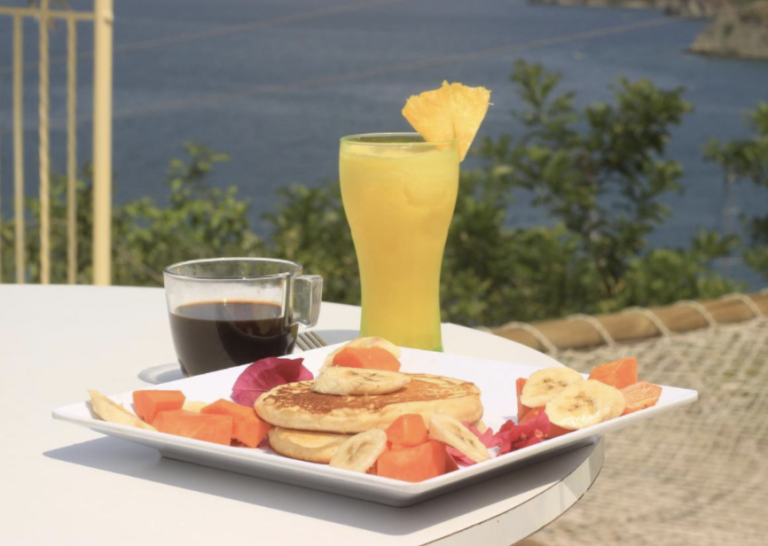
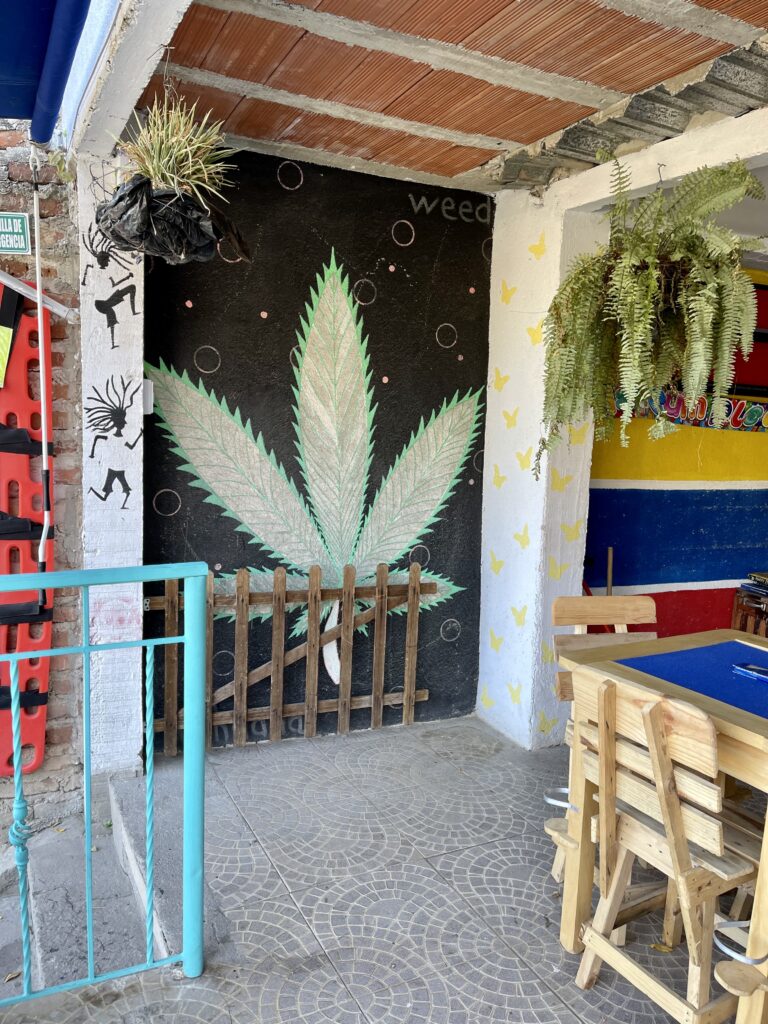
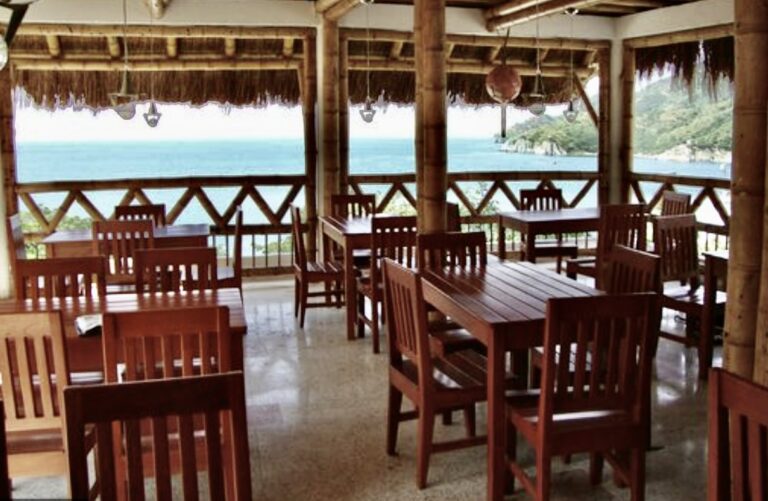
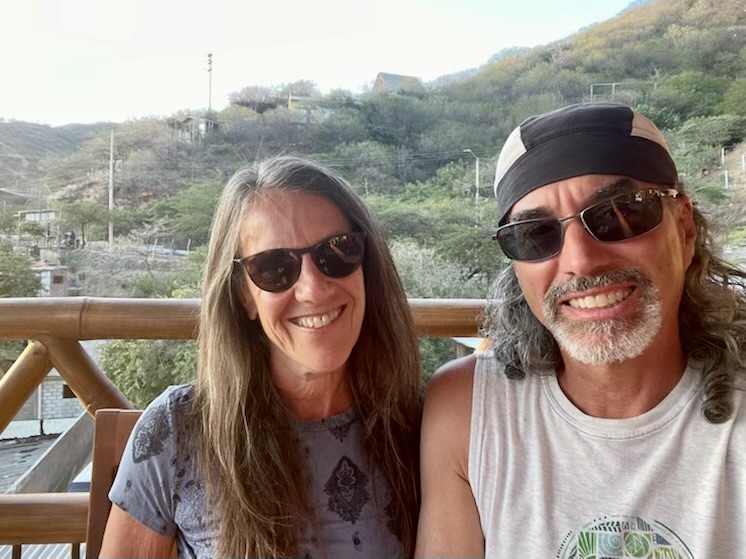
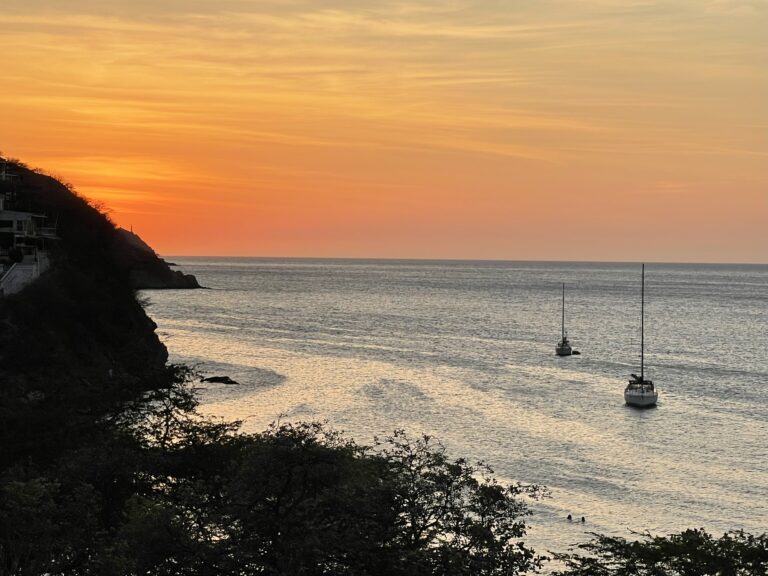
3 Responses
Condolences on L.H.’s passing. When grief hits it’s always good to be around someone you love—and beautiful surroundings can’t hurt either. That’s a gorgeous sunset, and a nifty reminder about resources for ALL OF US.
Susan, I am so sorry about your friend. We are thinking of you.